honey. What a beautiful sight!
| I spent the first week and a half of my bee guardianship just visiting my bees and spending time inches from the hive entrance. I often put my hand right up to a pile of bees and let them feel my energy and let them use their olfactory senses to determine my good intentions. I have an empirical theory that bees "know" when someone is a threat, and also know when they are adored. Science might not be able to entirely back this up, but enough information exists to suggest it's quite possible. |
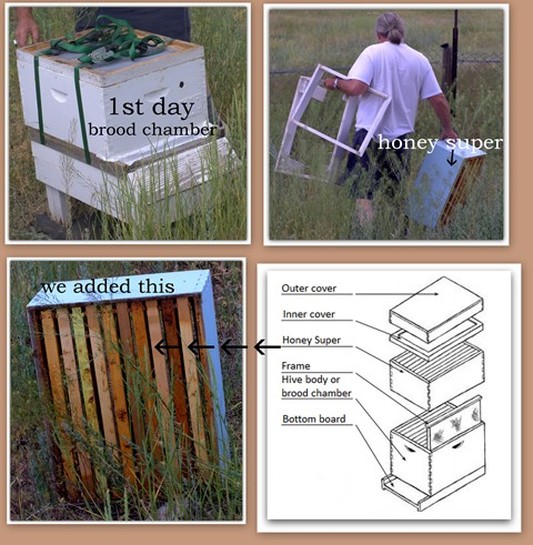 My 10-frame Langstroth hive
My 10-frame Langstroth hive The role of the olfactory system helps shape the complexities into "pieces of relevant information that will allow the animal to make decisions and engage in adapted behaviors. Major tasks of the olfactory system are for instance the identification of food sources, the detection of possible dangers (such as fire or predators), the recognition of potential mates as well as allowing social interactions." [source]
Science Correspondent, Richard Alleyne, claims researchers have discovered that human fear really does have an odor. He says that chemical signals are emitted by the body in sweat when a person is scared and can be picked up by others and can trigger fear in their brains, essentially concluding that the smell of fear in humans can be contagious. [to read more go to source]
The olfactory system is a fascinating topic all its own, but for the purposes of my bee blog, suffice to say it plays a big part in how humans and bees communicate, and it's worth respecting. Since I have zero anxiety around my bees, I believe my presence doesn't worry them. I'm sure an errant bee may freak out one day and choose a suicide defense by stinging me, but that'll be just an off day. I don't worry about it.
My hive has ten frames per box and I have two boxes at this stage. The lowest box to the ground is called the brood box and the second one on top of that is called the honey super or just super. All of this terminology is new to me. I've heard it before, I've read it before, but it just didn't sink in until I took the lid off and began to examine things. Pictured above is what I found directly beneath the top lid to the inner cover. Below is a partial view of the top of "frames" beneath the inner cover, before I pulled them out.
I have an old smoker I bought years ago because I liked the 'antique' feel of it and never once intended to use it. The bellows are worn and I figured it wouldn't work right. But it was all I had and I was champing at the bit to see inside my hive. I grabbed some paper and weeds and a piece of wood I found in the yard on my way to the hive and took a small book of matches with me; I had three matches left. I got the paper to light a tiny bit and fizzle out leaving some smoke. I quickly put the smoke (about as much as you might have when you blow out a large match or a small candle.) It sifted toward the entrance and dissipated quickly along with my patience. I truly believed my bees would cooperate and would not send out a guard to attack me. I knew some oddity could happen -- there could be a bee who was wired wrong and could over react - but it would be a fluke. I decided to just dive in and find out. I had zero anxiety. I just wanted to see my bees.
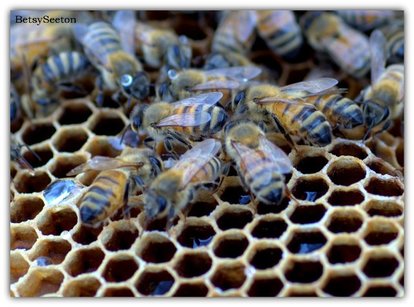
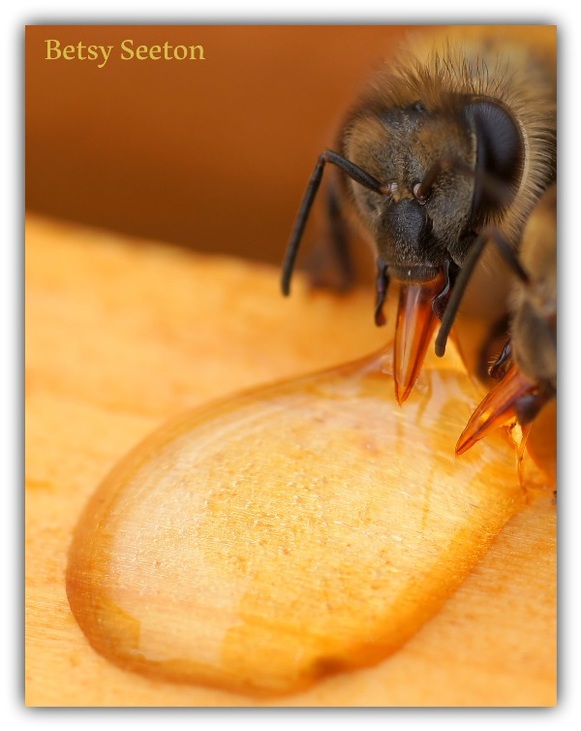
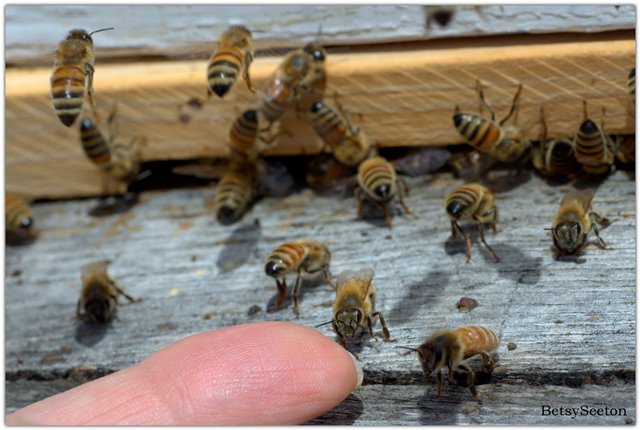
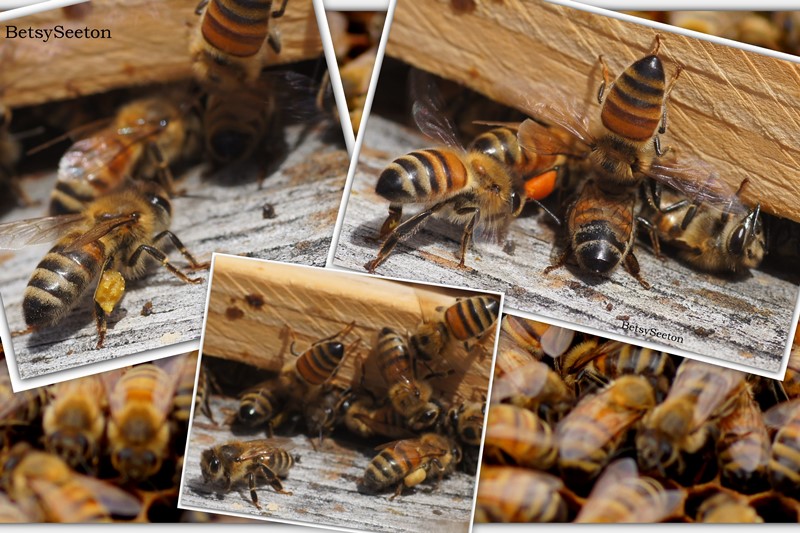
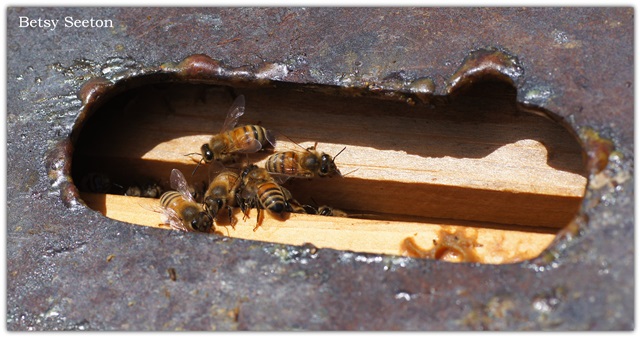
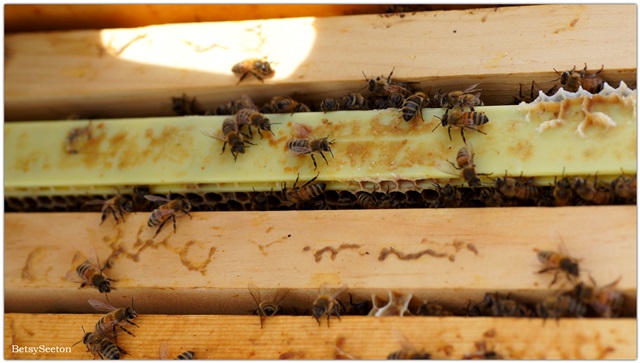
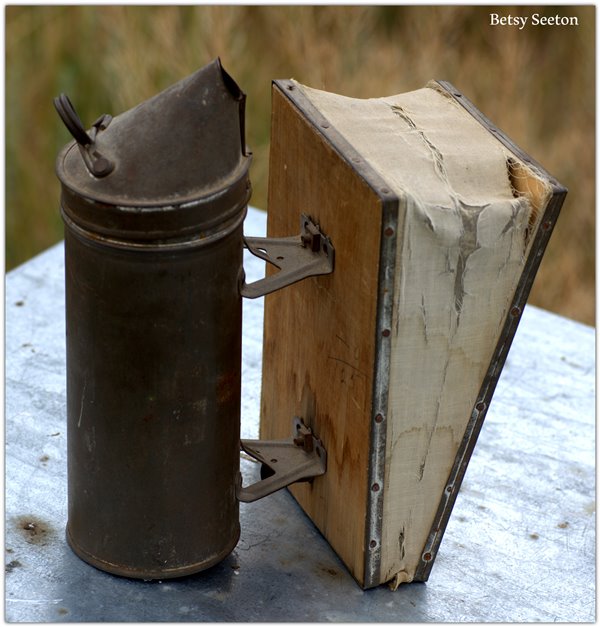
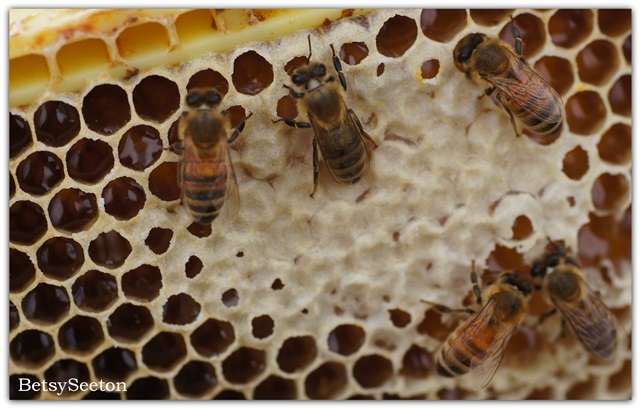
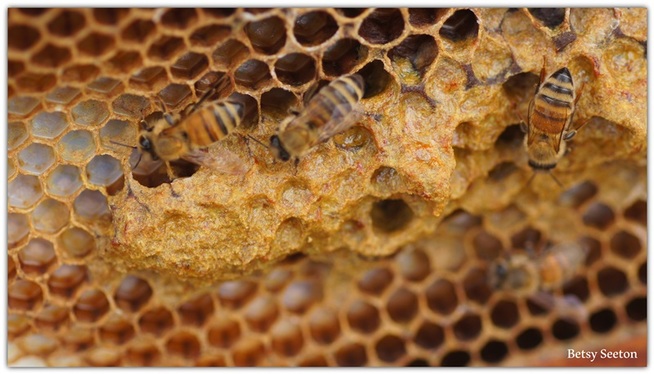
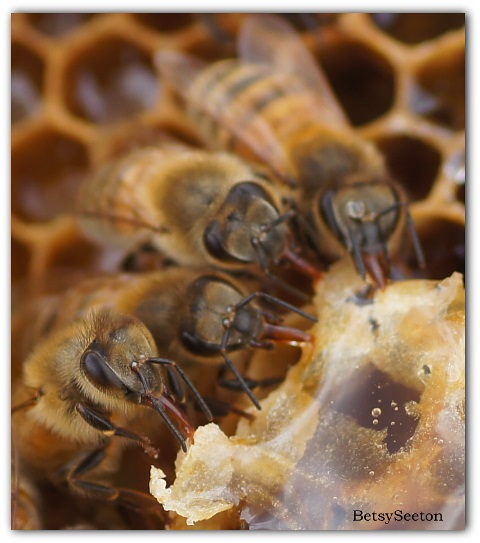
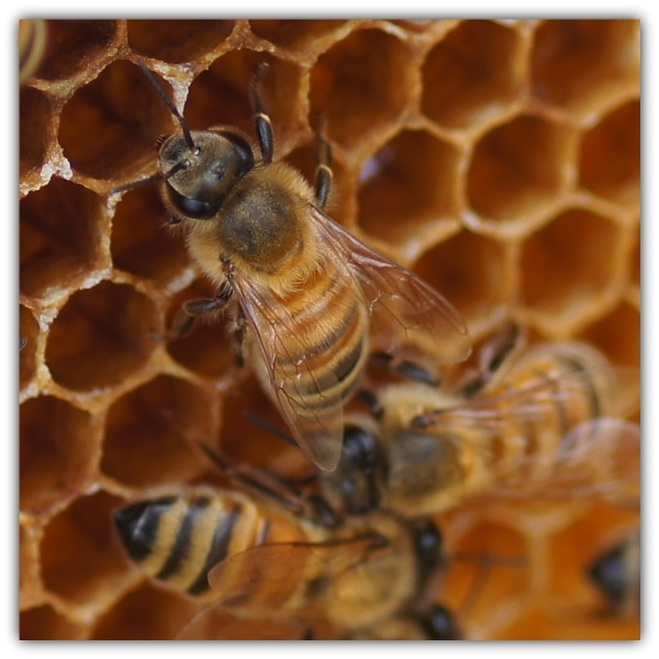
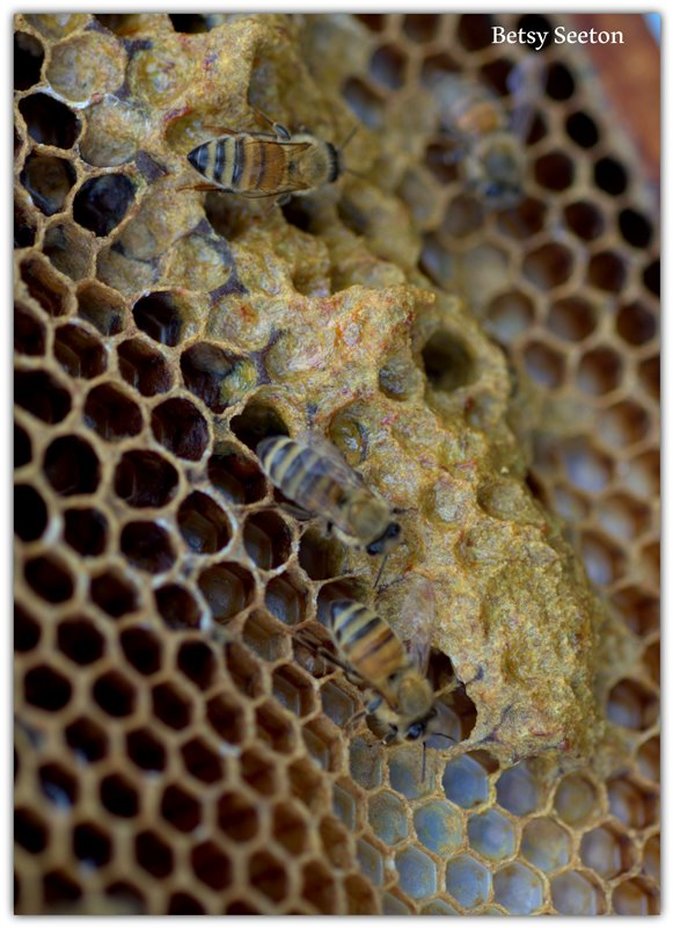
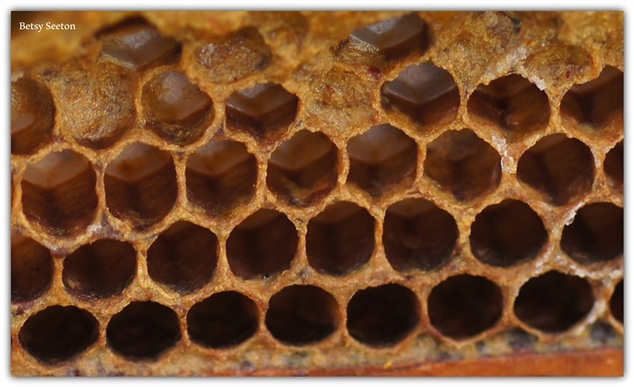
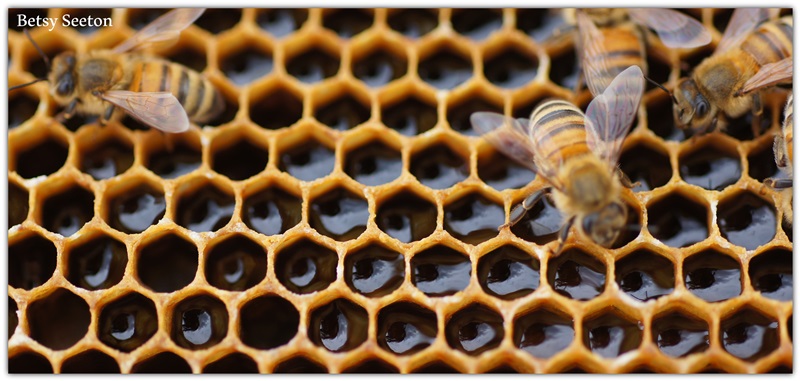
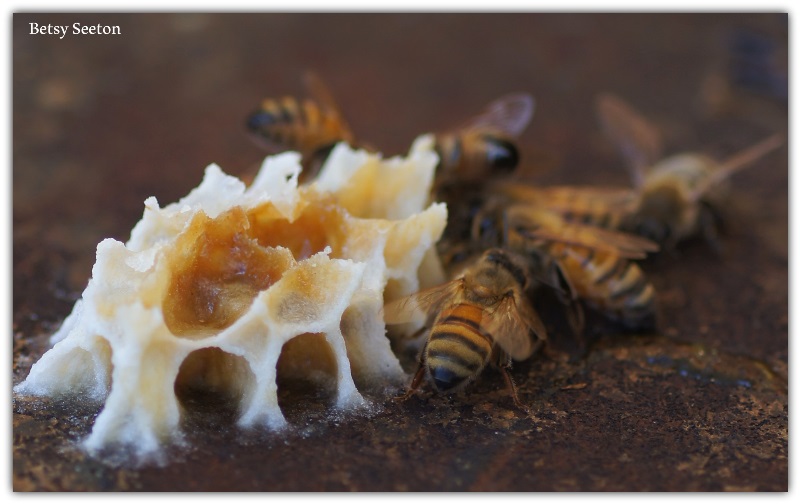
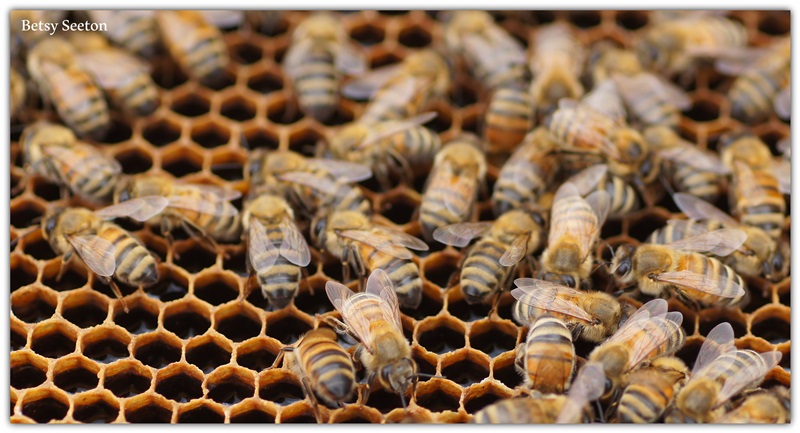
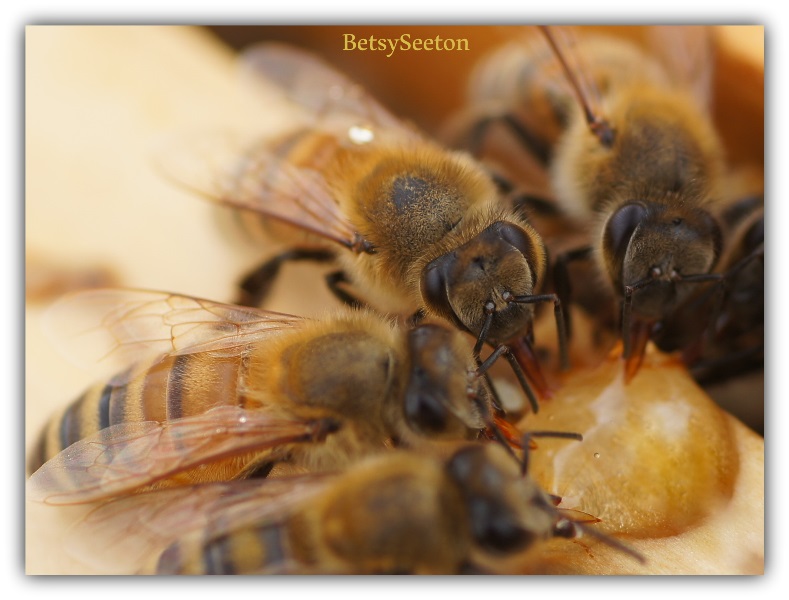
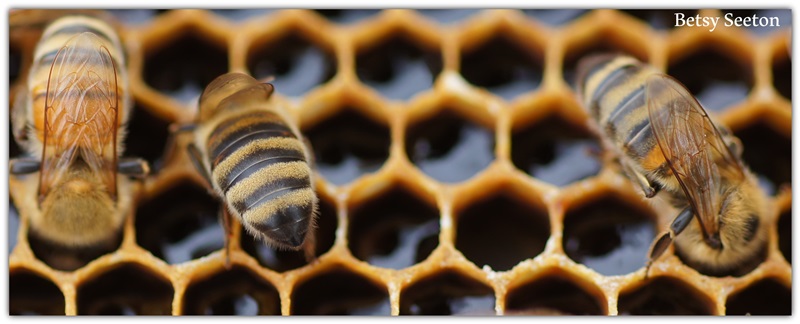
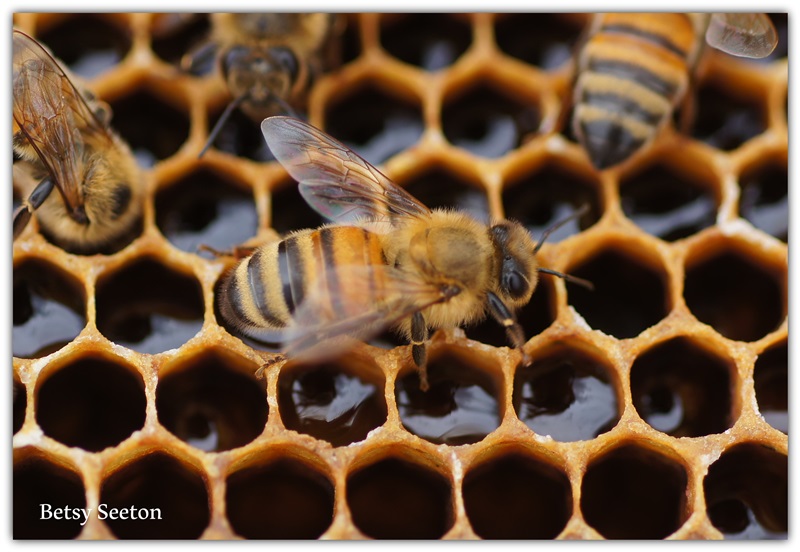
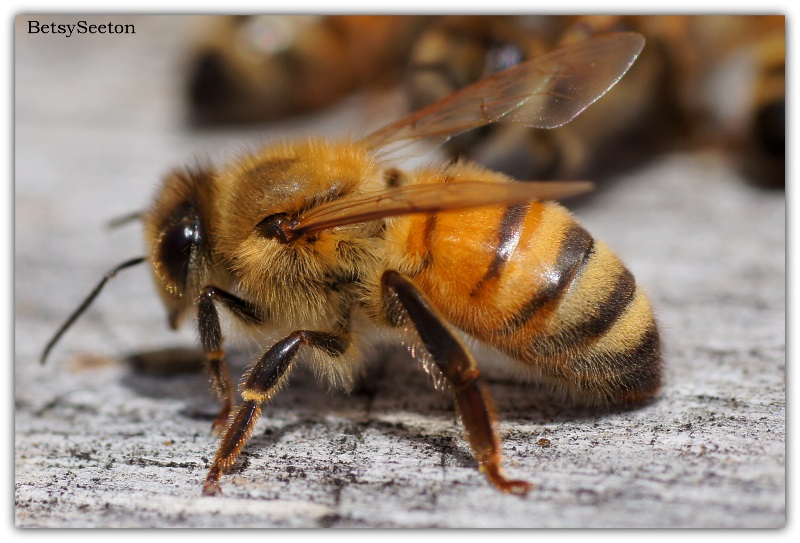
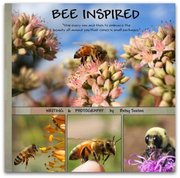

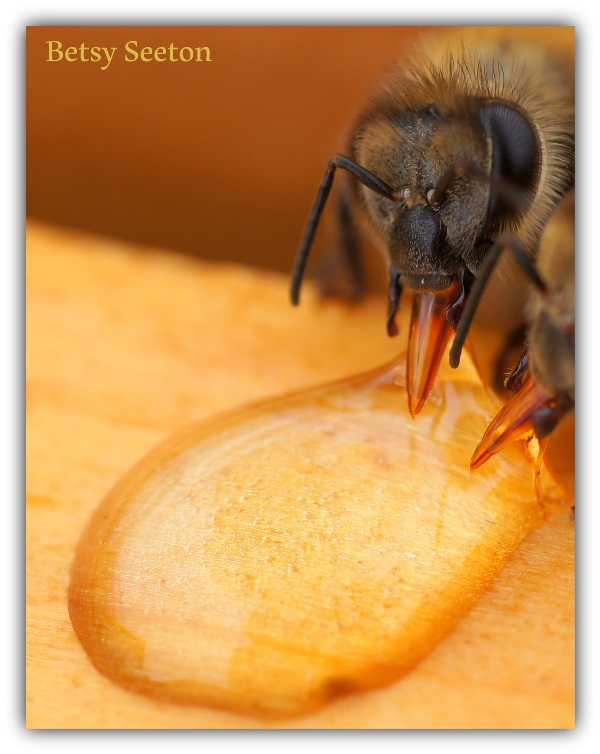
 RSS Feed
RSS Feed
